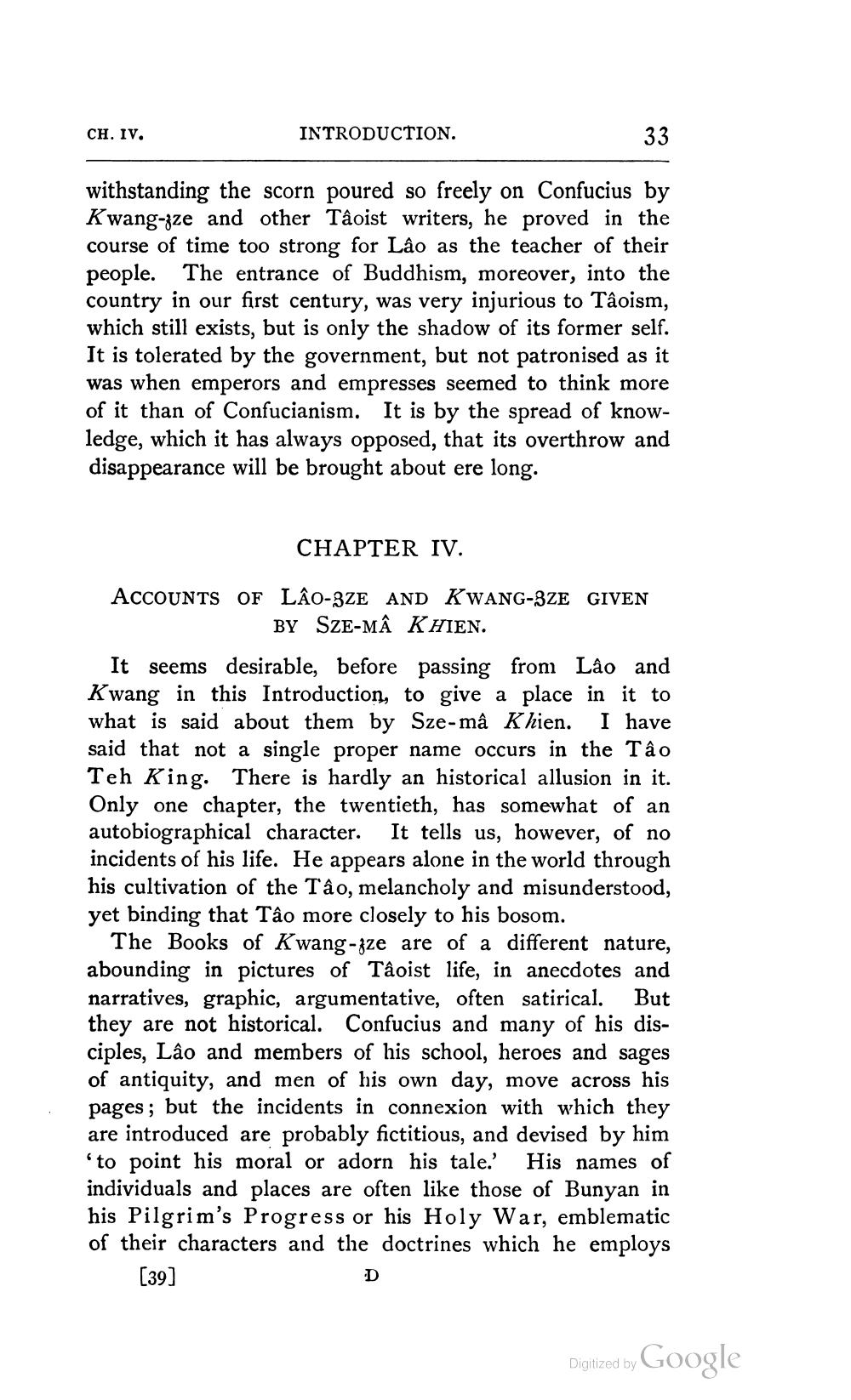________________
CH. IV.
INTRODUCTION.
withstanding the scorn poured so freely on Confucius by Kwang-zze and other Taoist writers, he proved in the course of time too strong for Lâo as the teacher of their people. The entrance of Buddhism, moreover, into the country in our first century, was very injurious to Taoism, which still exists, but is only the shadow of its former self. It is tolerated by the government, but not patronised as it was when emperors and empresses seemed to think more of it than of Confucianism. It is by the spread of knowledge, which it has always opposed, that its overthrow and disappearance will be brought about ere long.
CHAPTER IV.
ACCOUNTS OF LÂO-ZZE AND KWANG-BZE GIVEN
BY SZE-MÂ KHIEN. It seems desirable, before passing from Lâo and Kwang in this Introduction, to give a place in it to what is said about them by Sze-mâ Khien. I have said that not a single proper name occurs in the Tâo Teh King. There is hardly an historical allusion in it. Only one chapter, the twentieth, has somewhat of an autobiographical character. It tells us, however, of no incidents of his life. He appears alone in the world through his cultivation of the Tâo, melancholy and misunderstood, yet binding that Tâo more closely to his bosom.
The Books of Kwang-sze are of a different nature, abounding in pictures of Taoist life, in anecdotes and narratives, graphic, argumentative, often satirical. But they are not historical. Confucius and many of his disciples, Lâo and members of his school, heroes and sages of antiquity, and men of his own day, move across his pages; but the incidents in connexion with which they are introduced are probably fictitious, and devised by him 'to point his moral or adorn his tale. His names of individuals and places are often like those of Bunyan in his Pilgrim's Progress or his Holy War, emblematic of their characters and the doctrines which he employs [39]
D
Digitized by Google




